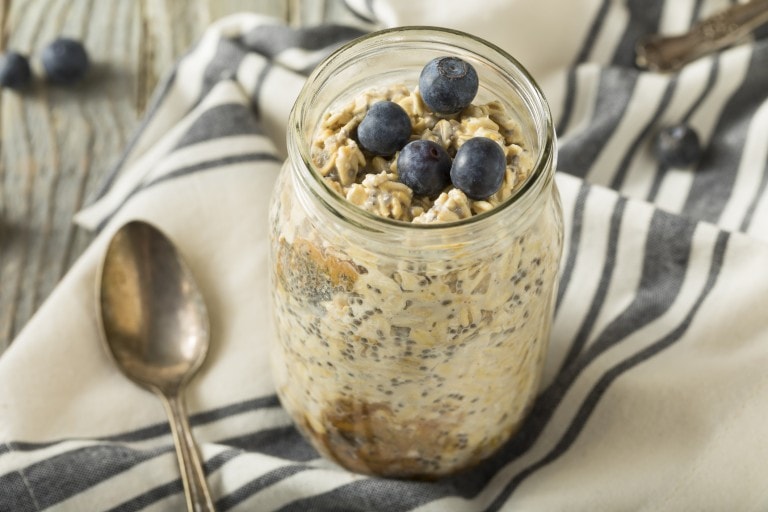Whether you’re breastfeeding already or pregnant and ready to learn all you can about having a flowing milk supply, there is a wealth of information out there. There are plenty of herbs, supplements, and natural remedies that can help you increase your production. Every mom is different and will have her unique breastfeeding journey. A low milk supply can be a very disappointing shock to a mom, especially to one who aims to breastfeed exclusively. There are many possible causes of low milk supply that should be closely looked at and addressed. Working with your health care team and lactation specialist is highly recommended when there are concerns with milk supply. They can offer you guidance and help formulate a plan to increase your milk supply.
Throughout history, women have used herbs and supplements to support and increase their milk supply. While some may find success by adding herbal supplements, there is still very little research and evidence to support their effectiveness or, more importantly, their safety for both mother and baby. It is best to work with a lactation consultant to examine the entire feeding process to address any concerns causing a low milk supply before adding supplements per their recommendation.1
Although herbal supplements do not have scientific backing, their history of use with breastfeeding women is astounding. To learn more, let’s dive into some of history’s most commonly recommended herbal supplements!
All About Fenugreek
If you are breastfeeding, you most likely have heard of fenugreek. It is commonly discussed when discussing herbs that may help increase your milk supply. Fenugreek is a “clover-like herb” with seeds commonly used in seasoning blends and for flavoring foods, drinks, and tobacco. It’s sometimes used in artificial sweeteners for foods like mock maple syrup due to its naturally pleasant flavor. While it can come in many forms, the seeds may have a possible effect on milk production.2
The U.S. Food and Drug Administration considers fenugreek a flavoring “generally recognized as safe” (GRAS). Although GRAS, no research supports the safety of fenugreek when taken by nursing mothers.3
If you decide fenugreek may be helpful, the Academy of Breastfeeding Medicine recommends taking 200 mL of herbal tea containing fenugreek three times a day or 570-600 mg three times per day. Fenugreek should only be taken for about one to three weeks.1
Fenugreek has been seen to be generally well tolerated. The most common side effects are diarrhea and body odor that resembles maple syrup. Notably, fenugreek is in the same “family” as ragweed, peanuts, chickpeas, green peas, and soybeans. If you have an allergy to any of these, you could have an allergic or anaphylaxis reaction to fenugreek.1
Whether fenugreek actually works as a galactagogue or not is still to be determined and may even be helpful as causing a placebo effect.1
Possible Solutions in Your Food
Many cultures believe certain foods, seasonings, herbs, and postpartum care will help the lactating mother with her milk supply. These beliefs pass on from generation to generation and are still widely spoken of today.
Seasonings like cinnamon, cumin, ginger, and garlic have been associated with helping with milk production when eaten regularly. Foods like alfalfa sprouts and oats also fall into this category. This doesn’t necessarily mean you have to down a whole garlic clove daily or eat curry with cumin for dinner every night, but perhaps take stock of how you feel when introducing more of these foods into your diet. Keep track of your milk supply to notice what might be working for you and your supply.
The beauty of using foods to increase milk supply is that they’re so easy to work into your daily life. Do you love ginger tea? Try drinking it once a day. Do you enjoy a hot slice of oven-fresh pizza now and then? Dress it up with garlic when you chow down. Do you always have a craving for something sweet in the mornings? Try oatmeal with cinnamon to hit two birds with one stone. It is as easy as listening to your body.
Other Herbs Commonly Related to Increasing Milk Supply
Fenugreek gets lots of attention, but other herbal supplements are also associated with possibly helping increase a mother’s milk supply. These include blessed thistle, goat’s rue, milk thistle, and stinging nettle. Although the names are familiar, scientific evidence is lacking, and available clinical studies vary in results. These supplements are widely available; many are marketed directly to breastfeeding mothers. Please make sure to consult with your healthcare team before taking it.
The history of herbal supplements and breastfeeding is quite amazing, but when it comes to concerns with your milk supply, reach out to a lactation specialist for support. The best way to work toward increasing your supply is to determine the root cause and navigate through it. It is best to address the direct feeding concerns first and then, if needed, try adding herbal supplements with the guidance of a lactation consultant.
































